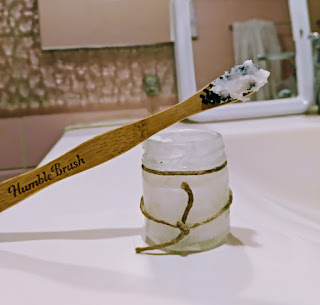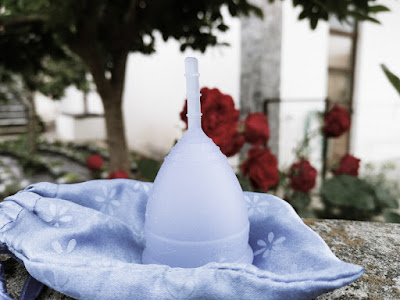Zero Waste (what's it?) / Desperdício Zero (O que é?) 🏡
ENG. Zero
Waste, What is it? 🏡
To combat the gigantic amount of plastic that lives in the ocean, many people started to reduce the consumptions of this material (because not all plastic is recyclable – and lets be honest: only a minority do recycle).
 O plástico tomou uma dimensão incontrolável nos oceanos
ao ponto de surgir uma ilha de lixo que em pleno 2018 tem uma dimensão de 1.6
milhões quadrados e não para de aumentar. O caso alarma-se pois além de não ser
bonito vermos a quantidade de lixo que pode demorar centenas de anos para se
degradar, esse mesmo lixo, nomeadamente o plástico, já entrou no ciclo da
cadeia alimentar dos peixes e algumas aves que confundem o plástico por comida
ou ingerem partículas microplásticas. A consequência é de tal forma grave que
quem come peixe pode muito bem estar a consumir peixe contaminado que se
alimenta à base de plástico. Estima-se que em 2050, se a quantidade de plástico
aumentar no oceano, haja mais plástico do que peixes. :\
O plástico tomou uma dimensão incontrolável nos oceanos
ao ponto de surgir uma ilha de lixo que em pleno 2018 tem uma dimensão de 1.6
milhões quadrados e não para de aumentar. O caso alarma-se pois além de não ser
bonito vermos a quantidade de lixo que pode demorar centenas de anos para se
degradar, esse mesmo lixo, nomeadamente o plástico, já entrou no ciclo da
cadeia alimentar dos peixes e algumas aves que confundem o plástico por comida
ou ingerem partículas microplásticas. A consequência é de tal forma grave que
quem come peixe pode muito bem estar a consumir peixe contaminado que se
alimenta à base de plástico. Estima-se que em 2050, se a quantidade de plástico
aumentar no oceano, haja mais plástico do que peixes. :\
Deixo um video em baixo, podem selecionar as legendas em português ;)
The concept
of "zero waste" is something that is being put into practice today.
Many people begin to become aware of the problems that are caused due to the
exaggerated consumerism of certain things, such as packaging and plastic bags,
that large percentage stops in landfills and oceans. The plastic has taken an
uncontrollable dimension in the oceans resulting in an island made of trash,
especially with plastic, owning in the middle of 2018 a size of 1.6 million
square meters and does not stop increasing.
The case is
alarmed! Besides facing with the amount of garbage, most of it plastic, which
is not beautiful to see and can take hundreds of years to degrade, has already
entered in the food chain cycle of fish and some birds, because they confuse
plastic for food or eat micro-plastics they don't see.
The
consequence is so severe that those who eat fish may very well be consuming
contaminated fish that feed on the plastic.
It is
estimated that by 2050, if the amount of plastic continue increasing in the
ocean, that will be more plastic than fish.
To combat the gigantic amount of plastic that lives in the ocean, many people started to reduce the consumptions of this material (because not all plastic is recyclable – and lets be honest: only a minority do recycle).
Being aware
of this problem, Bea Johnson became a phenomenon and an example to follow when
she became the creator of the “Zero Waste” movement. She and her family have
lived a life without waste for many years. According to Bea, to live a life “without
waste” is necessary (for beginning) to adopt the philosophy of 5R’s in the
following order:
- 🍁 Refuse
what you do not need. If you have advertising in your mail write there you don’t
want publicity;
🍁 Reduce
what you use the most. Be aware of what kind of garbage you produce more and in
this way try to reduce it to the maximum; (for example, since you have conscience
that you produce more plastic waste you can try to avoid plastic, buy products
with no plastic or trying to make your own things);
🍁 Reuse
and Repair as much as you can. Give the objects, old clothes, a second life,
among others.
🍁 Recycle
everything that you cannot refuse or it’s difficult to reuse. But always think
in Recycling as the last option. First think what you can do with your “waste”.
🍁 Rot
(Compost). Composting is made through organic matter that you put in your
trash, but that trash will stop in landfills and the organic matter would be just
a waste. If you do the Compost at home you can make a fertilizer to plants,
even though you do not have it you can give to someone with plants, or you can
just throw away without any plastic bag. To do compost search how to do it, it’s
not difficult!
Bea and her
family felt the need to change their habits to have a more sustainable life; a
more human life based on experiences than in “things”. Her family lives a minimalist
style. All the material goods they have they buy in second hand; in their
garage exists only bicycles. Among other habits they seem to be a very happy
family. ☺
To prove
that living a zero waste life style isn’t impossible, she decided to put all
the garbage produced in a year in a jar and she always travel with it when she goes to conferences to defend his book “Zero
Waste Home”. In a whole year, the family produced only a trash jar.
♻🚮🚲
PT. Movimento Desperdício Zero , o que é? 🏡
O conceito de “desperdício zero” é algo que está a ser posto em prática nos dias de hoje.
O conceito de “desperdício zero” é algo que está a ser posto em prática nos dias de hoje.
Muitas pessoas começam a despertar consciência face aos
problemas que são causados devido ao consumismo exagerado de certas coisas,
tais como embalagens e sacos de plástico, que grande percentagem pára nos
aterros e nos oceanos.
 O plástico tomou uma dimensão incontrolável nos oceanos
ao ponto de surgir uma ilha de lixo que em pleno 2018 tem uma dimensão de 1.6
milhões quadrados e não para de aumentar. O caso alarma-se pois além de não ser
bonito vermos a quantidade de lixo que pode demorar centenas de anos para se
degradar, esse mesmo lixo, nomeadamente o plástico, já entrou no ciclo da
cadeia alimentar dos peixes e algumas aves que confundem o plástico por comida
ou ingerem partículas microplásticas. A consequência é de tal forma grave que
quem come peixe pode muito bem estar a consumir peixe contaminado que se
alimenta à base de plástico. Estima-se que em 2050, se a quantidade de plástico
aumentar no oceano, haja mais plástico do que peixes. :\
O plástico tomou uma dimensão incontrolável nos oceanos
ao ponto de surgir uma ilha de lixo que em pleno 2018 tem uma dimensão de 1.6
milhões quadrados e não para de aumentar. O caso alarma-se pois além de não ser
bonito vermos a quantidade de lixo que pode demorar centenas de anos para se
degradar, esse mesmo lixo, nomeadamente o plástico, já entrou no ciclo da
cadeia alimentar dos peixes e algumas aves que confundem o plástico por comida
ou ingerem partículas microplásticas. A consequência é de tal forma grave que
quem come peixe pode muito bem estar a consumir peixe contaminado que se
alimenta à base de plástico. Estima-se que em 2050, se a quantidade de plástico
aumentar no oceano, haja mais plástico do que peixes. :\
Para combater a quantidade gigantesca de plástico que existe
muita gente começou a reduzir o consumo (pois nem todo o plástico é reciclável).
Bea Johnson tornou-se
um fenómeno e um exemplo a seguir quando se tornou a criadora do movimento
“Zero Waste” (Desperdício Zero). Ela e sua família vivem uma vida sem
desperdício já há muitos anos. Segundo Bea para viver uma vida “sem
desperdício” é preciso adoptar a filosofia dos 5R’s pela seguinte ordem:
🍀 Recursar (Refuse) o que não necessitamos, por exemplos
brindes de festas; colocar um aviso no correio a dizer que não quer
publicidade;
🍀 Reduzir (Reduce) o que mais usamos. Ter consciência que
tipo de lixo produzimos mais e desta forma tentar reduzi-lo ao máximo;
🍀 Reuzar ou Reparar (Reuse and Repair) tudo o que puder. Dar
segunda vida a objectos, roupa velhas, entre outros.
🍀 Recliclar (Recycle ♻) o que não pode ser recusado e difícil
de ser reusado.
🍀 Compostar (Rot). A compostagem é feita através da matéria
orgânica (restos de comida, cabelos, etc). A compostagem serve para criar um
fertilizante natural onde deverá ser usado na terra pois é muito nutritivo.
Serve para armazenar os nutrientes convenientemente para a terra. Para os interessados podem pesquisar
sobre o assunto (infelizmente ainda não adoptei o método da compostagem por
isso não vou falar sobre qual será a melhor forma de o fazer).
Bea e sua família sentiram a necessidade de mudar os seus
hábitos para ter uma vida mais sustentável, mais humana, mais baseada em
experiências do que em “coisas”. Vivem em estilo minimalista. Todos os bens
materiais que necessitam compram-nos em segunda mão; andam de bicicleta ou
transportes públicos; e aparentemente são uma família feliz. :)
Bea para provar que isto não é uma utopia, decidiu colocar
todo o lixo produzido num ano dentro de um frasco e mostra-o sempre quando vai
a conferências defender o seu livro “Zero Waste Home”.
Deixo um video em baixo, podem selecionar as legendas em português ;)




Comentários
Enviar um comentário